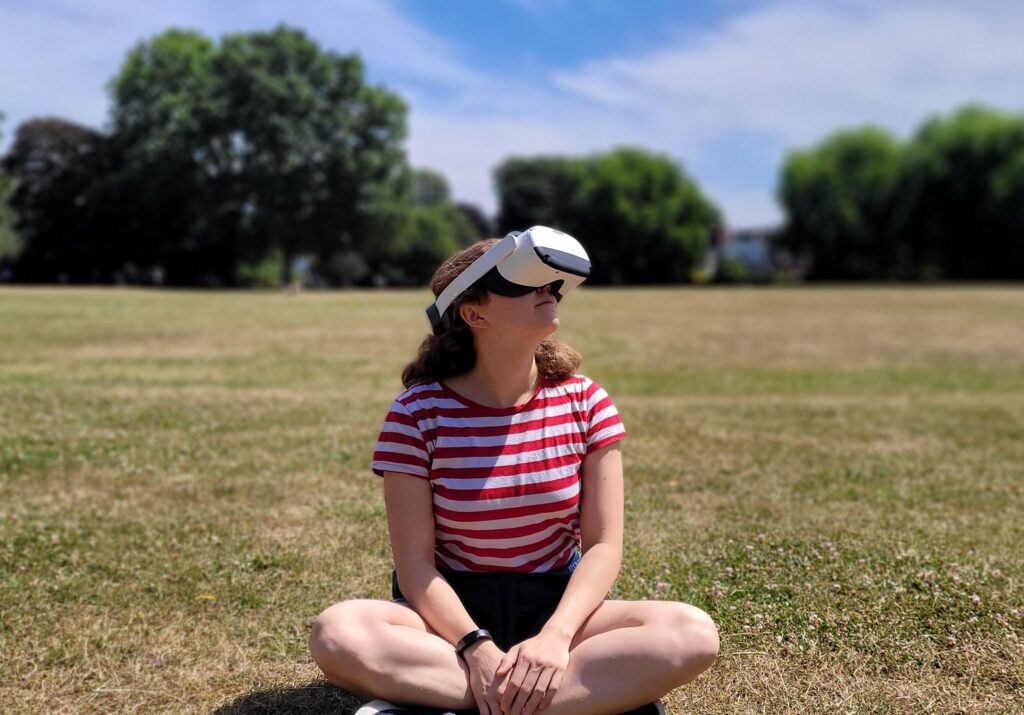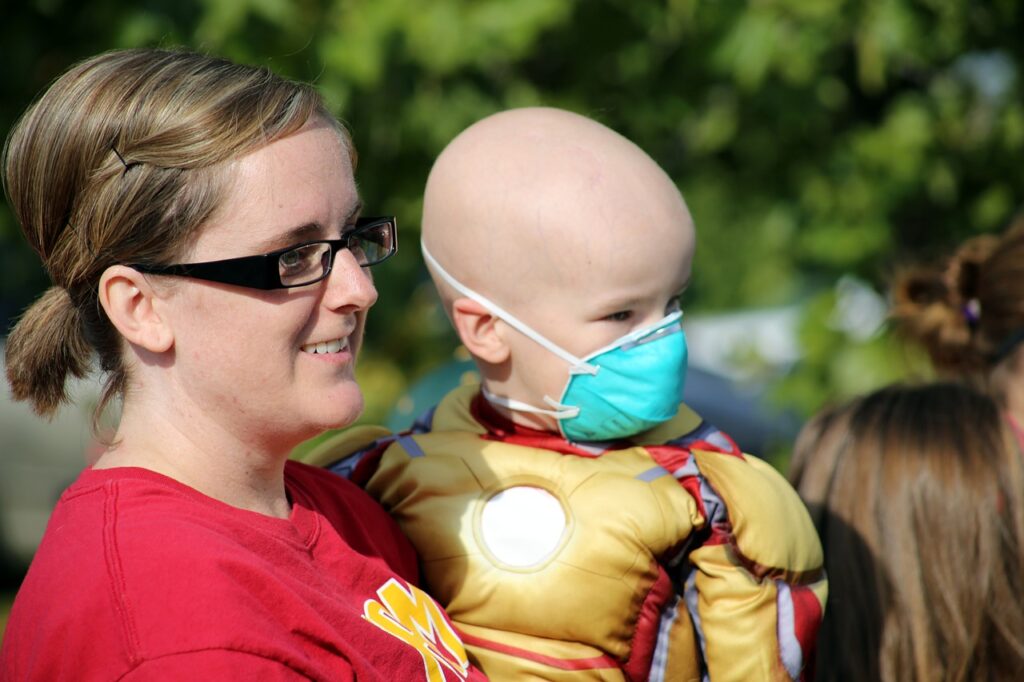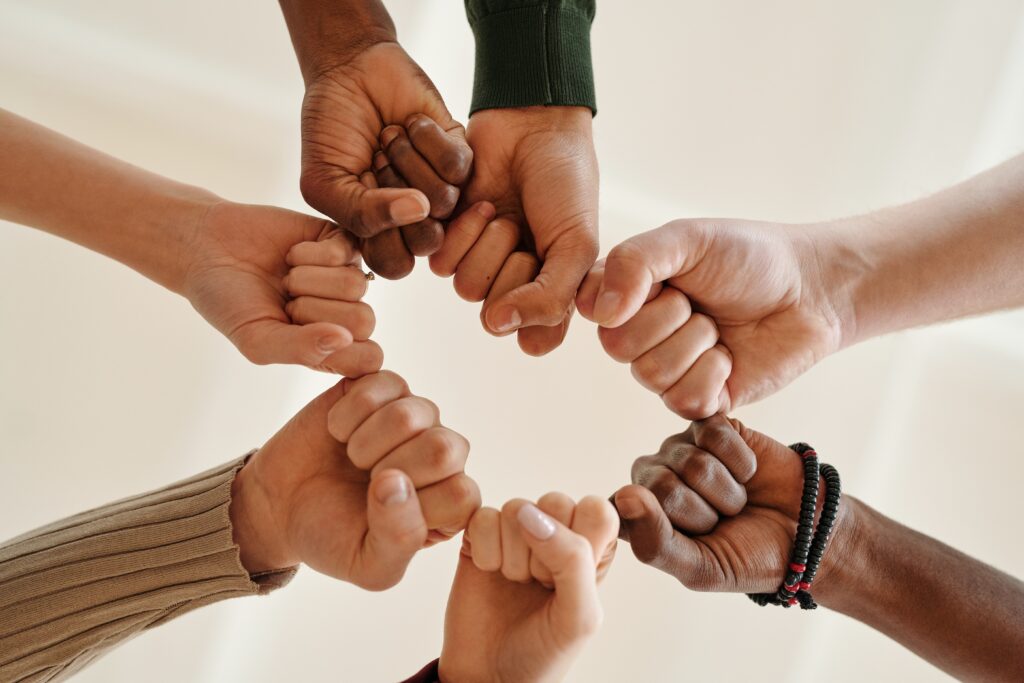Adolescence is a difficult time of development, exploration, and new discoveries. But when cancer is involved, those formative years can become a lonely and difficult struggle. Teenagers dealing with a cancer diagnosis confront a wide range of difficulties that go well beyond the disease itself. These adolescent patients are especially sensitive to a variety of emotional problems due to the complexity of puberty and the burden of a terminal illness. Sadness, anxiety, and loneliness dominate their lives, clouding what should be a time of joyful experimentation and carefree youth. It is vital to address the distinct emotional and psychological needs of these young warriors because the burden of cancer adds another layer to an already complex journey.
The Need for Support: Adolescence and Cancer
The Adolescent and Young Adult (AYA) Cancer Program at Yale New Haven Children’s Hospital has embarked on a revolutionary and novel project: virtual reality (VR) cancer support groups for adolescents. The goal of these online communities is to give young people a place where they can go to feel comfortable talking to others about their problems and get the comforting company they need during difficult times.
The VR support groups were created by licensed clinical social worker Amanda Garbatini and pediatric hematologist/oncologist Dr. Asher Marks. They understood the difficulties experienced by adolescents with cancer, who are often at a crossroads between the pediatric and adult cancer care systems. Garbatini, who overcame illness as a teenager, is sympathetic to young cancer sufferers’ feelings of alienation and rejection.
“During my own cancer treatment as a teenager, I felt a deep sense of isolation and a lack of social connection,” Garbatini said. As the author puts it, “these support groups aim to bridge that gap and provide a space where teens can come together, support one another, and realize that they are not alone in their journey.”
Virtual Reality: A New Approach to Reach Teens with Cancer

VR support groups are an attempt to use technology to simulate a traditional support group experience. A virtual reality headset is given to each participant, and they can customize their avatar to represent them in the digital world. Avatars can be altered to reflect the participants’ personalities and interests. Avatars’ mouths animate in time with the user’s speech, creating a more lifelike and immersive experience.
Virtual reality support groups allow up to four teenagers to meet in a single “room” with Garbatini as their virtual guide. Participants can see and talk to one other through their avatars even if they are in separate physical locations. The anonymity of the internet facilitates frank discussions on the emotional toll of cancer treatment.
Teens with cancer may now participate in support groups no matter where they are thanks to virtual reality technology, as Garbatini explains. Because of this, “teens can interact with their peers even if they aren’t in the same place at the same time.”
The Clinical Trial: Measuring Progress and Resilience
The VR support groups were developed by Garbatini and Dr. Marks, who conducted clinical research to evaluate their efficacy. Before and after joining the online support groups, members were tested for depression, anxiety, and resiliency. Positive outcomes were reported by participants, including increased resilience and better mental well-being.
Dr. Marks stressed the importance of resilience in helping patients manage their sickness daily. For example, “seeing an improvement in resilience after their involvement in the VR support groups is a significant clinical outcome and demonstrates the positive impact of these virtual interventions.”
The positive results of the pilot program have encouraged Drs. Marks and Garbatini to make virtual reality (VR) support groups a regular part of treatment for young people with cancer. They understand the importance of these kids’ mental health to their physical health and rehabilitation.
Since the “emotional and psychological needs of teenagers with cancer can significantly impact their physical health,” Dr. Marks underlined the importance of attending to these concerns. To put it another way, “By expanding the program, we hope to reach more adolescents in need and provide them with the necessary support to navigate their cancer journey.”
The COVID-19 pandemic has brought attention to the value of online communities for those with impaired immune systems. Many young cancer patients are without social contacts and peer support since in-person support groups have been suspended to safeguard vulnerable populations. Virtual reality support groups have been invaluable during this period, allowing people to participate in group therapy and peer support without leaving the safety and convenience of their own homes or hospital beds.
Expanding the Program: A Standard of Care
Since the virtual reality (VR) support groups for teenagers have been so effective, healthcare providers are thinking about expanding the program to other age groups. Cancer in children and young adults presents its special problems, but both age groups can benefit from having a strong community around them. Healthcare providers strive to ensure that all cancer patients, regardless of age, receive the emotional support they need by customizing the VR support group model to meet diverse age ranges.
In addition, VR’s utility goes far beyond the realm of cancer-related support groups. It has a wide variety of medical uses, from serving as a diversion technique during painful procedures to being used in virtual reality psychotherapy for a variety of mental health disorders. Virtual reality’s potential to improve health outcomes and revolutionize the patient experience spans all areas of medicine.
Helpful Hints for Parents
If your adolescent has been diagnosed with cancer, it is important that you urge them to join a virtual reality support group. In such adversity, these communities of support can be invaluable.
Benefits Talk to your kid about the advantages of joining a virtual reality support group. Describe how this can improve their well-being by putting them in touch with people who can relate to their struggles and offer them emotional support.
Addressing concerns about anonymity is important because some kids may feel unsafe sharing their stories in person. Assure them that the anonymity provided by virtual reality support groups will allow them to speak freely and openly.
While peer support can be found through virtual reality support groups, it is still crucial for parents to be actively involved in their teen’s experience. Provide a listening ear, sympathetic support, and open lines of contact.

FAQ: Frequently Asked Questions
For teens dealing with cancer, how might virtual reality support groups help?
In a virtual reality support group, teens can feel comfortable opening up to their peers about their struggles and receiving empathy and understanding in return. Young cancer patients often struggle with emotions of melancholy, worry, and loneliness, but support from these groups can help ease such symptoms.
Is it possible to have a successful support group in VR?
Clinical trials performed at Yale New Haven Children’s Hospital have shown encouraging preliminary results. Those who attended virtual reality support groups said they felt stronger and happier afterward. These findings provide encouraging evidence that VR could be used to help ease the emotional burden of cancer for young people.
How widely available are virtual reality (VR) teen cancer support groups?
If a youngster is unable to attend a traditional support group because of their location, a lengthy hospital stay, or immunosuppression, they will be able to participate in a virtual reality support group from anywhere with an internet connection. The objective is to make the platform available to as many young people dealing with cancer as possible.
Parental encouragement of teens’ participation in VR support groups: how can it be done?
A: Parents can lend their support by encouraging their kids to join support groups, talking to them about the advantages, easing their fears regarding confidentiality, and remaining active in their teens’ experiences. The best way to provide the required assistance during this difficult time is through open communication and understanding.
Empowering Teen Cancer Patients through Virtual Reality Support

In conclusion, virtual reality support groups have proven to be an effective means of equipping young people with cancer and addressing the psychological and emotional difficulties they confront throughout treatment. These organizations use VR’s interactive and immersive features to create a welcoming space where kids may talk to others their age about their struggles and receive the kind of emotional support they need. Clinical trials have shown promising results for using VR to improve cancer patients’ quality of life, and now researchers want to apply the technique to patients of all ages. We may hope that in the future, every young cancer sufferer will find comfort, understanding, and strength through the virtual support of their peers and caregivers as healthcare professionals continue to embrace and expand the use of virtual reality technology.






